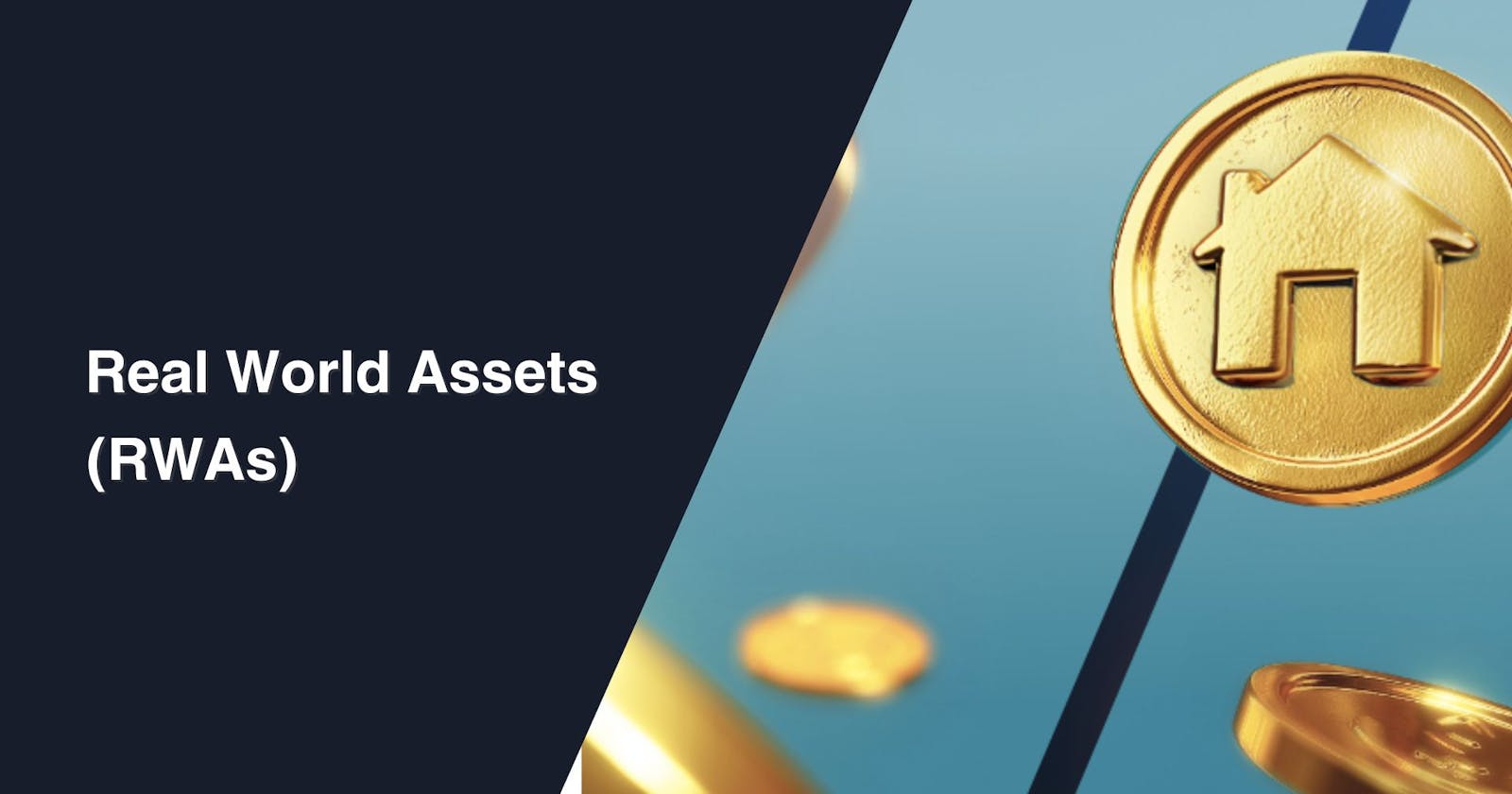Real World Assets (RWAs) are a class of cryptographic tokens that represent tangible assets that exist outside of the digital spectrum. They can range from bonds to real estate, raw materials and machinery. RWAs allow these assets to find a place within the Decentralized Finance (DeFi) ecosystem, increasing the availability of these often inaccessible financial tools and opening new application horizons.
Use the multi-chain Bitcoin.com Wallet app , trusted by millions to securely and easily buy, sell, exchange and manage Bitcoin and the most popular cryptocurrencies.
Understanding Real World Assets (RWAs)
Tangible assets represented by RWAs are basically assets that have substantial value and are universally recognized, meaning that their value and ownership are widely accepted and understood, making them viable for transactions, investments and other financial operations globally. They are objects with economic value, owned by individuals or companies, and expected to generate future economic benefits. The property can be transformed into value through sale or license. These tangible assets constitute a significant part of the total global financial value.
The integration of these universally recognized tangible assets into the blockchain and DeFi through RWAs is a revolutionary innovation. Through tokenization, tangible assets can be represented as tokens on a blockchain, allowing them to be easily and securely bought, sold or exchanged on digital platforms. This fusion of traditional assets with digital technology aims to improve liquidity, accessibility and transparency, optimizing the experience for both buyers and asset owners.
Why are RWAs useful?
Since the tangible assets of traditional finance comprise a significant portion of total global financial value, they should be seriously considered in any diversified investment portfolio. For people with considerable exposure to crypto assets, integrating a mix of these traditional hard assets can result in a more robust portfolio. Unfortunately, access to these traditional assets is limited by several factors, including high barriers to entry, regulatory and geographic restrictions, and liquidity issues.
Traditional assets such as real estate and commodities often require a substantial initial investment. Likewise, although there are various denominations available, a reasonable investment in bonds also requires a significant outlay, limiting participation primarily to already wealthy individuals. Regulations, jurisdictions and geographic locations play a critical role in asset accessibility. Different countries have varying regulations regarding asset ownership and investment, which can prevent international participation or make it virtually unviable without institutional help. Again, this generally requires that people already have a certain amount of wealth.
Finally, assets such as real estate and commodities generally lack immediate liquidity. Converting these assets into cash can often be a long and complex process, making it less attractive to people with shorter time preferences or who need to exit positions quickly.
RWA Tokenization crypto tokens present innovative solutions to these challenges inherent to traditional financial assets. One of the most transformative benefits they offer is the ability to reduce barriers to entry. By enabling fractional ownership of real-world assets, they make it possible for people to purchase tokens that represent a portion of assets like real estate or bonds. This approach fundamentally reduces the initial capital requirement, expanding accessibility to a diverse range of people who may have previously been excluded from such markets.
Beyond this, the global nature of blockchain technology breaks geographical and regulatory limitations. It provides a platform where assets, previously limited by regional regulations or jurisdictional restrictions, become universally accessible. This global reach ensures that people from around the world can take advantage of opportunities that may have previously been denied to them or excluded by price. Additionally, the inherent design of cryptocurrency exchanges improves the liquidity of traditionally illiquid assets. People are equipped with the agility to enter or exit positions quickly, adapting their strategies to changing market conditions.
Finally, the essence of tokenization lies in its ability to break down tangible assets into smaller, more digestible units. This mechanism not only democratizes access to investment but also paves the way for a more diversified and inclusive asset ownership landscape. In essence, RWA tokens bridge the old with the new, creating a more level playing field in traditional financial markets.
Featured Current Examples of Real World Assets (RWAs)
RWAs are a rapidly developing sector in the crypto landscape. Below are some of the use cases for RWAs:
Bonds: RWA bond tokens, which are backed by sovereign bonds like US Treasury bills and bonds, may be used to generate yield. By tokenizing these bonds, investors may profit from a return on their investment as well as the increased transparency, liquidity, and fractional ownership that come with blockchain technology.
Real estate: Real World Assets Tokenization of real estate enables anyone to own a portion of a property and get rental money from it. This has the potential to democratise and increase the accessibility of real estate investing.
Raw Materials: Tokenized fine art enables anyone to profit from owning a portion of a sculpture or painting. This can enable those who would not have the funds to buy great art to invest more easily purchase a complete work.
Art & Collectibles: By allowing the acquisition of partial ownership in artwork or collectibles, platforms such as Maecenas have revolutionised the ownership of art and collectibles.
Equipment and Machinery: Businesses are investigating the tokenization of industrial machinery and equipment to maximise asset utilisation by permitting fractional ownership and use rights.
By bridging the conventional and technical divides, RWAs are revitalising the asset landscape. Its incorporation into the blockchain and decentralised finance (DeFi) domains marks a significant advancement in advancing diversity, creativity, and an expanded array of investment prospects. The usage of RWAs is predicted to grow exponentially as technology advances, revolutionising how people think about investing and asset management.
